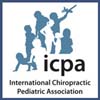top of page


Ready to schedule a consultation?
Give us a call at
828-587-CARE
( 828-587-2273 )

Toddlers & Children
Parents will go to great lengths to protect their child’s health. They are adamant about proper nutrition, exercise, and regular dental and eye examinations. Yet many aren’t aware of the most important part of the child’s health care program—regular spinal checkups.
Children, by their nature, are active and energetic, and rarely present themselves with symptoms of subluxations. It can be especially difficult for parents to realize subluxations are adversely affecting their children—particularly if no outside symptoms exist.
Once symptoms are manifested, it often means a health care issue that has been causing damage to the child for weeks or months.
To provide our children with optimal health, it’s essential to make chiropractic checkups part of a child’s regular health care routine.
Dr. Wilson has a passion for children’s health and offers free well-baby spinal examinations. Dr. Wilson has also taken extensive training in pediatric adjusting with the International Chiropractic Pediatric Association.

Infants & Babies
You do everything to ensure your baby’s health. During pregnancy you eat right, you avoid drugs, cigarettes and alcohol (even aspirin has been shown to cause problems in pregnancy) and you take childbirth classes. After the baby is born, you breast feed knowing that it is the superior form of nutrition and you do everything you can to make sure your baby is healthy.
Another key element in ensuring your infant’s health is to have their spine checked as well. A chiropractic spinal checkup can ensure a healthier baby, one with higher resistance to disease and a healthier nervous system.
When does a baby need a spinal checkup?
According to chiropractic pediatric specialist, Larry Webster, D.C., there are six times in a baby’s first year of life with spinal examinations are especially important after the birth process:
• When the baby starts to hold his/her head up
• When the baby sits up
• When the baby starts to crawl
• When the baby starts to stand
• When the baby starts to walk

bottom of page